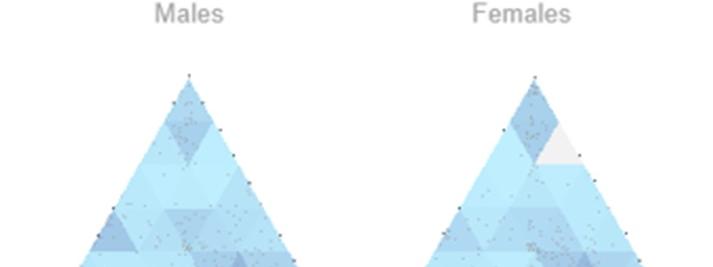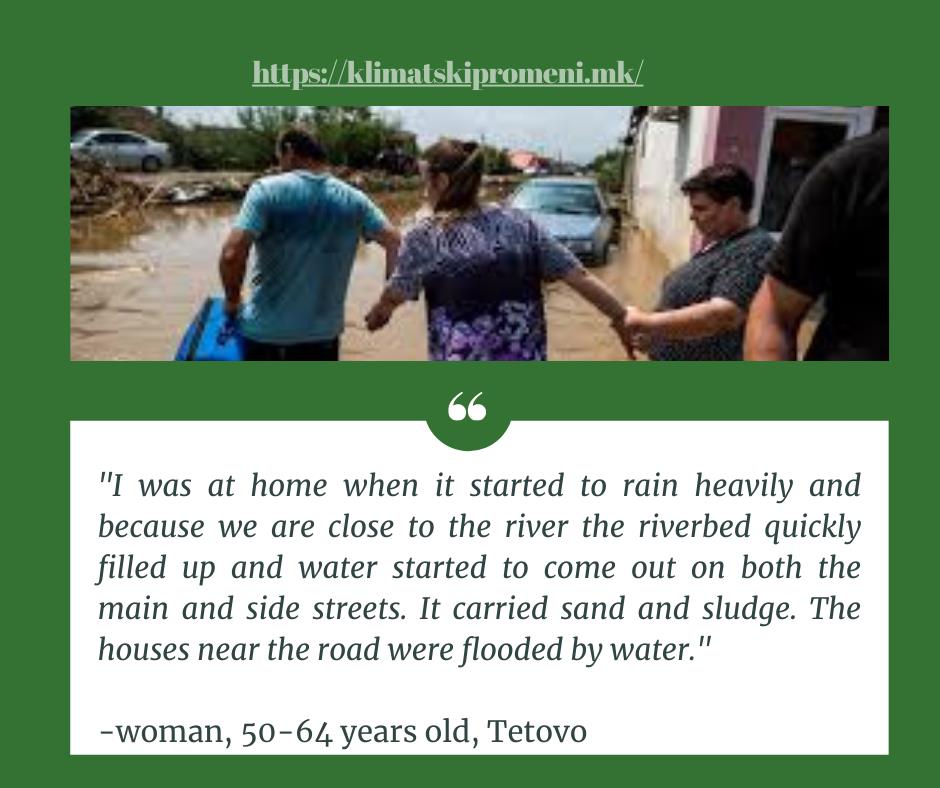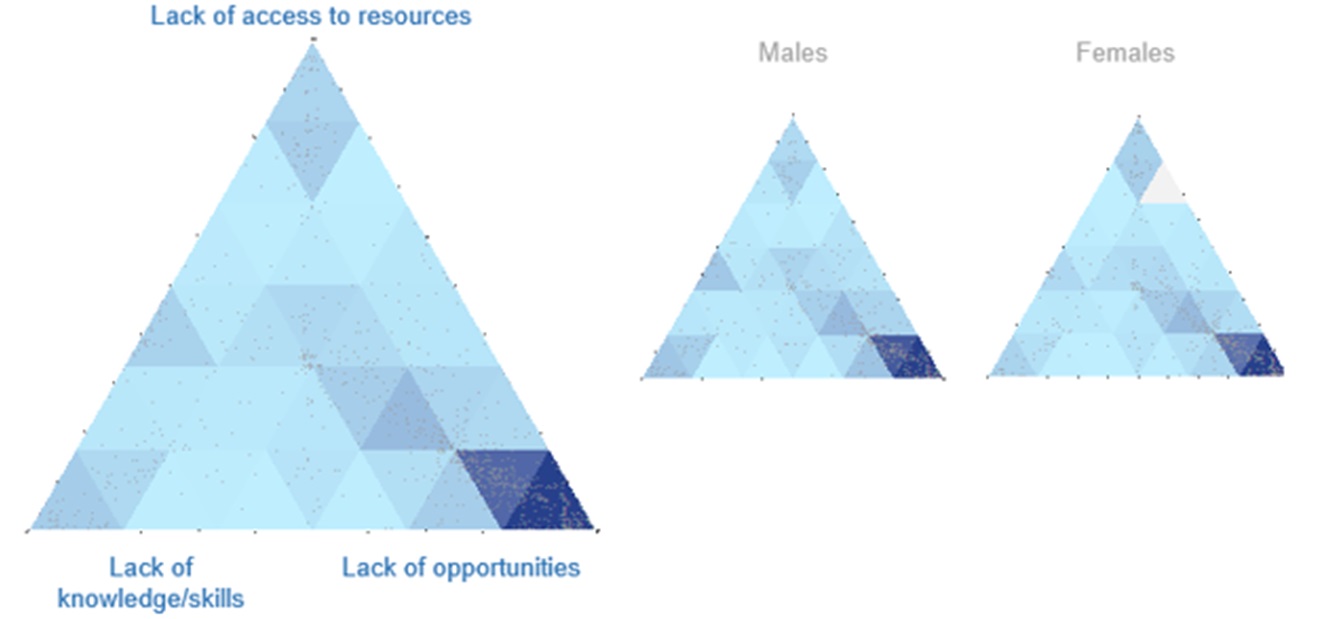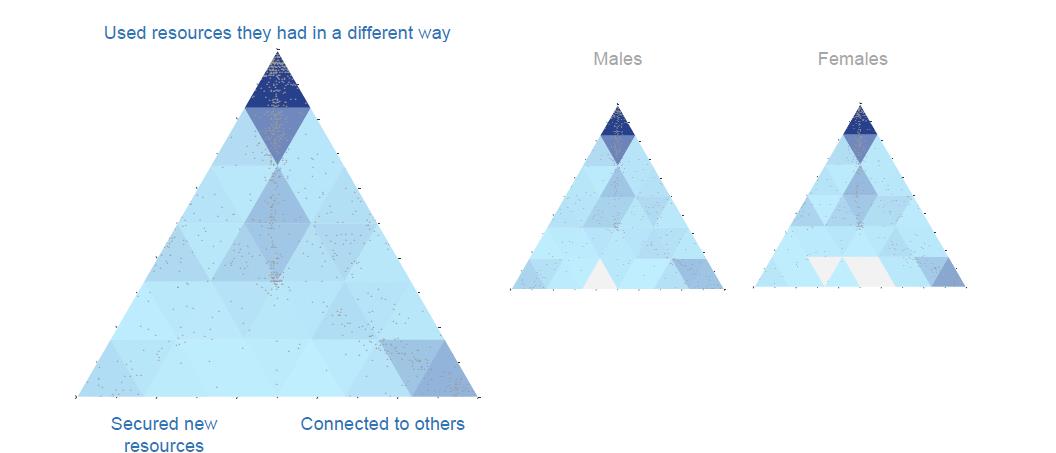Public Perception Study to Contribute to Climate Change Adaptation and Vulnerability Assessment in the Republic of North Macedonia
UNDP Macedonia Environment Portfolio initiated a micro-narratives perception study to collect issues and experience from ordinary people who deal with the effects from climate change first-hand for incorporating identified needs into policy agenda.
- {{"article.by"|translate}} Pavlina Zdraveva, Khatuna Sandroshvili, Anna Hanchar, Damiano Borgogno
- {{"article.posted"|translate}} 21-10-2021
Public Perception Study to Contribute to Climate Change Adaptation and Vulnerability Assessment in the Republic of North Macedonia
UNDP Macedonia Environment Portfolio initiated a micro-narratives perception study to collect issues and experience from ordinary people who deal with the effects from climate change first-hand for incorporating identified needs into policy agenda.
What do men and women across the country know about climate change? Do they act differently to respond to climate-induced changes affecting their every lives? What is the decision-making paradigm between the couples?
These were the questions guiding UNDP North Macedonia Environment and Gender teams working to support gender mainstreaming into strategic climate change policies: the National Strategy on Climate Action being developed by the Ministry of Environment and Physical Planning of the Republic of North Macedonia, and a new Gender Equality Strategy, initiating for the first time a specific strategic objective of Gender Equality and Climate Change.
In collaboration with UNDP’s Global Support Program and with UNDP Georgia Innovation Team, Cognitive Edge and Data Atelier UNDP Macedonia Environment Portfolio initiated a micro-narratives perception study to complement top-down interventions and collect issues and experience from ordinary people who deal with the effects from climate change first-hand for incorporating identified needs into policy agenda. The design of the study framework, data collection and interpretation were a highly collaborative process between September – December 2020 and involving national partners, academia, international actors and practitioners working in the areas of gender, governance and environment.
The methodology behind micronarratives prompts people to tell meaningful stories that they themselves interpret (so no “expert” opinion), and the stories are run through sophisticated software, charted and mapped – by topic, age, sex, location, sentiment and more. It makes it easier to report back on progress – by reflecting sentiment that comes directly from citizens. And a constant stream of stories can also help the Government, and development organizations plan and see things coming ahead of time, spot trends, and do powerful advocacy (See UNDP Georgia work on Gender Based Violence).
1,223 narratives were collected within one month period nation-wide through online questionnaire shared through social media and internal communication with the local government councils and the engaged government partners.

Little over half of the respondents - 53%- are women and almost half of those are aged 30-49 (42%), living in urban setting (65%), married or living together with partners (70%), almost half have Bachelor or vocational education (43%). 14% of the vulnerable groups are respondents with low income living with extended family. Up to 20% of the respondents own a house, land and a car and about 15% do not own any of these.
The overwhelming majority of the climate -induced events people shared were related to Disaster management (75%), Agricultural activities (7.6%), and Health (5.2%). Almost half (48%) of these situations were caused by Rainfall/Flooding.
The most notable gender difference was observed with regards to health - 75% of experiences of climate-induced events related to health were shared by women.

Figure 1. Things that made it difficult to deal with the climate-related situations
Key findings indicate that the lack of opportunities is a major barrier in dealing with climate - related situations for both men and women

Figure 2. Things that made it difficult to deal with the climate-related situations
Each grey spot within the triangle diagram represents an individual observation shared by a respondent. Darker area colours indicate higher frequency of responses in that area. The overall pattern reflects the current disposition in relation to a concept.
- Knowledge is the most used resource used to deal with climate change-related situations and people did so by using the existing resources in a different way, with the focus on connectivity being stronger among women.

Figure 3. The way people dealt with the climate-related situations
- Rules and procedures or Financial support were the factors that helped most people to deal with climate change – related situations.
- Friends/family/neighbours are the most commonly reported group of people who helped the respondents to deal with climate change – related situations. Social media were mentioned by women marginally more than by men (9% vs 6%).
- Women report higher rate of joint decision-making than men (31% vs 23%), while men report higher rate of budget management themselves, compared to women (47% vs 29%).
”This new and innovative research method is an example for new level of adaptation – adapting institutions for development of climate informed policymaking. Having access to people’s personal stories not only contributed to best represent the challenges women and men face with regards to the negative impact of climate change, it also raised shaping of the Macedonian gender and climate policies on a whole new level” said Elena Grozdanova, State Counsellor in the Ministry of Labour and Social Policy and UNFCCC gender and Climate Change Focal point.
The natural next step in this process will be re-convening the platform of actors to make sense of the data and key findings, and design consensus-based pilot actions to address the needs identified at the frontline and policy levels.
If you are working on gender and climate and interesting in translating study results into actions, reach out – we are open for collaborations and contributions.
-
Корисни линкови
26-01-2021 -
Справување со климатските промени и загадувањето на воздухот во градот Скопје
29-04-2018 -
Финансирање во климата
28-01-2022 -
Микронаративи
08-06-2022
{{"article.lastestPosts"|translate}}
-
Нови финансирања за унапредување на природата и биолошката разновидност на Зелената агенда за Западен Балкан
11-03-2025 -
Започна проектот за развој на 1-от и 2-от двогодишен извештај за транспарентност и 5-от национален извештај за климатски промени на С.Македонија
04-03-2025 -
Земјоделски форум за климатски промени: Се изнаоѓаат решенија за поголема климатска отпроност на заемјоделието
02-12-2024 -
Заврши COP29, центарален фокус на финасирањето за климата
02-12-2024



 Мод за знаковен јазик
Мод за знаковен јазик Говорен асистент
Говорен асистент Означи линкови
Означи линкови

 Зголеми маус
Зголеми маус